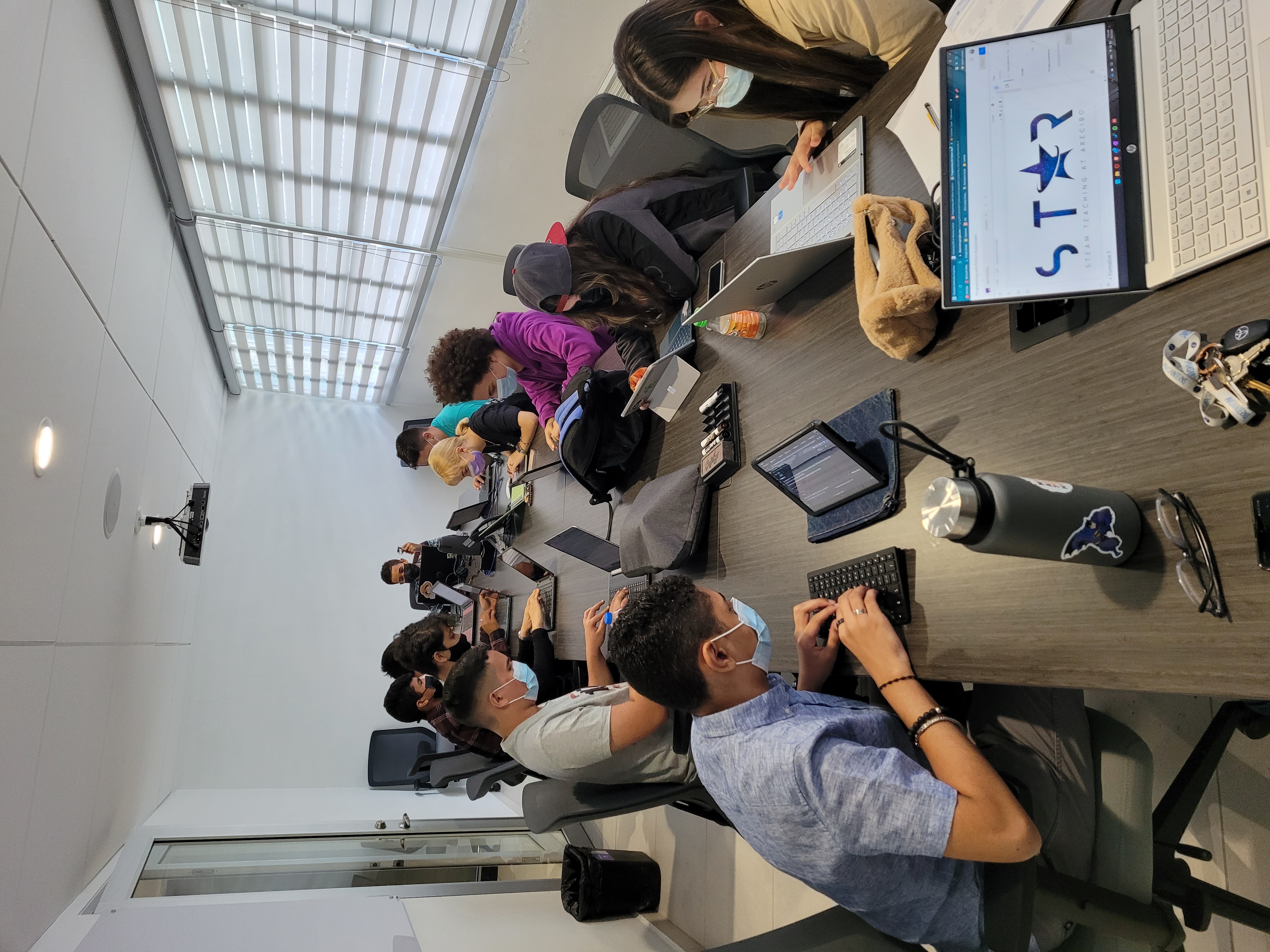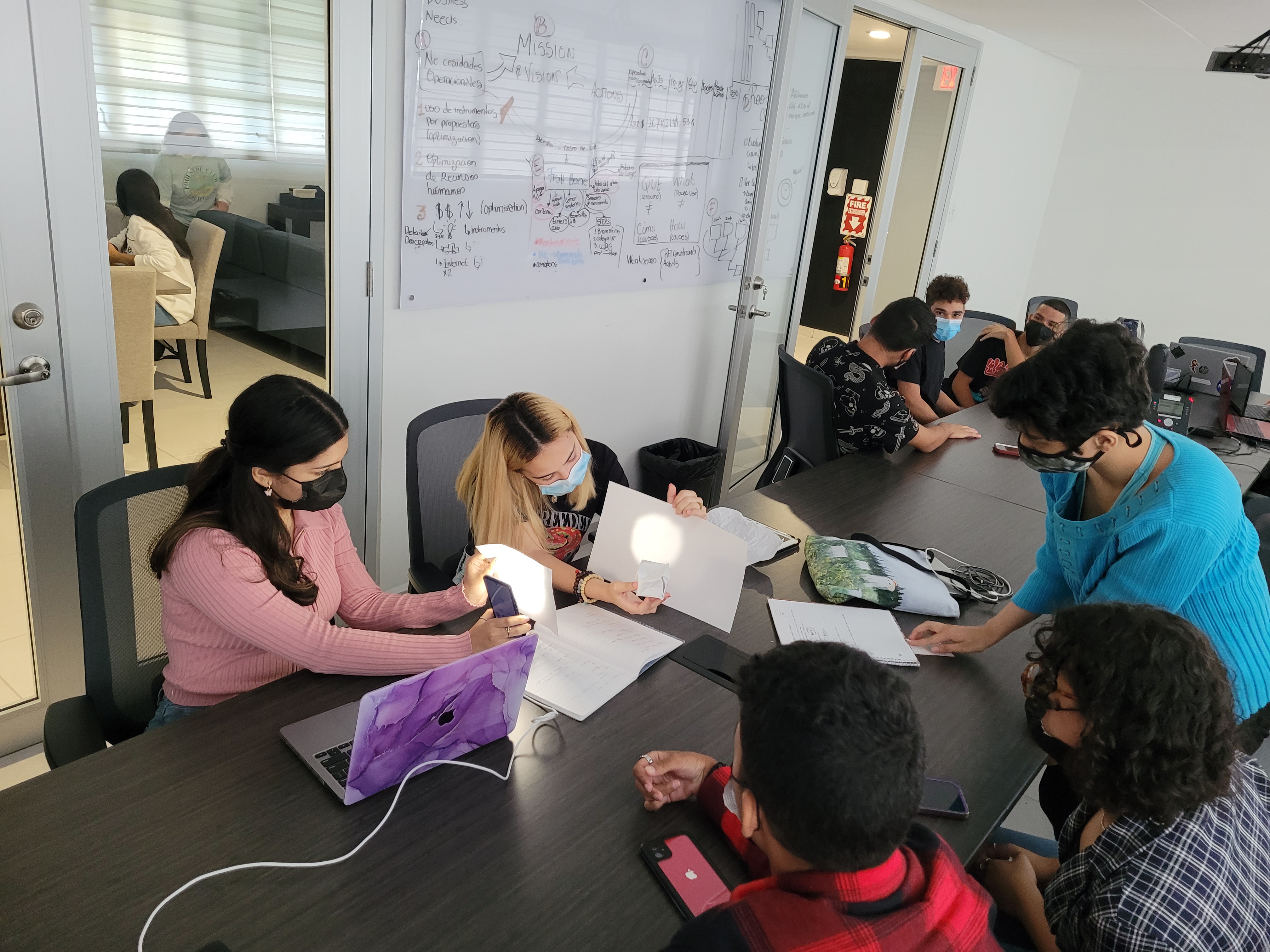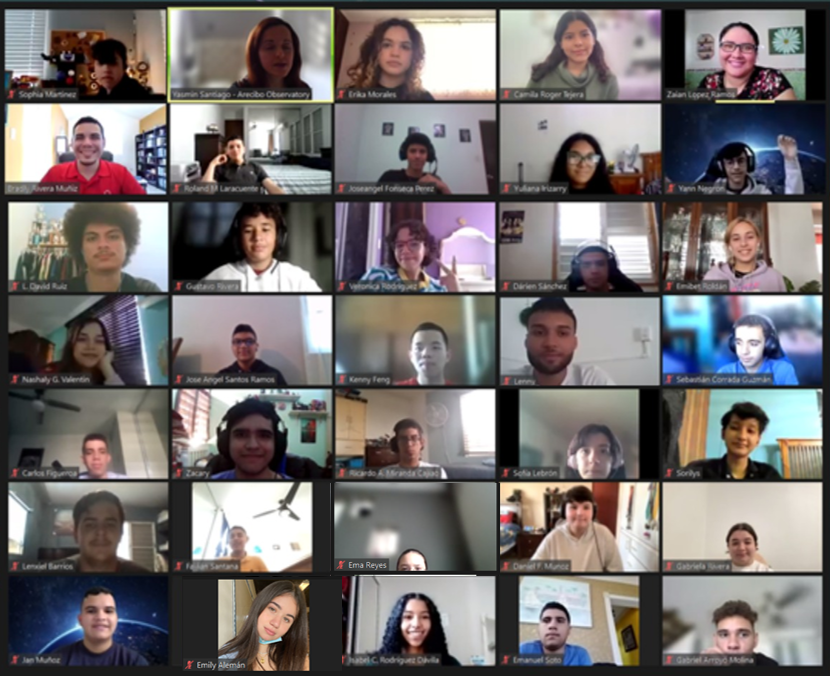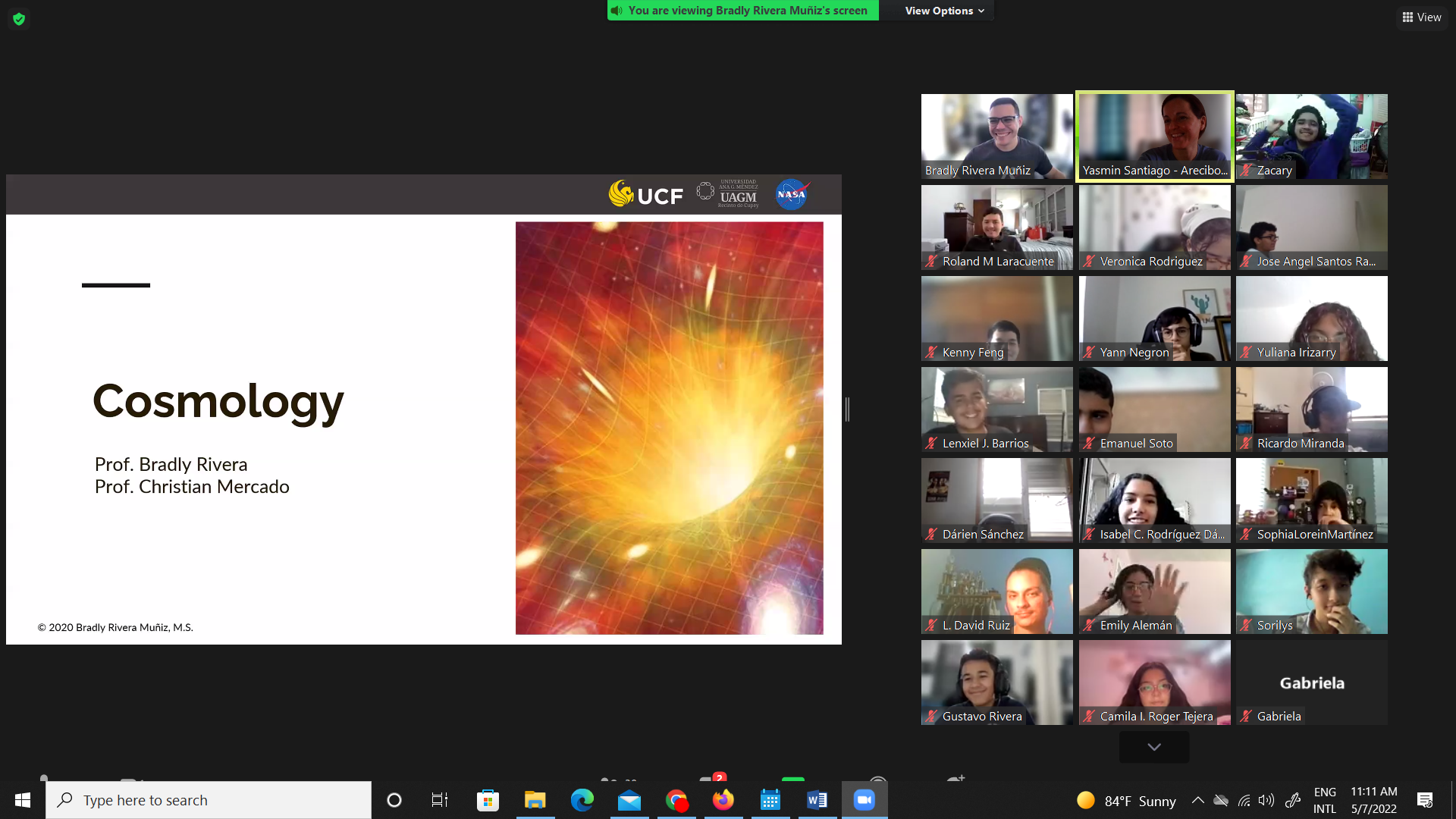
Space & Planetary Sciences
STAR Academy for Students
 |
Program OutcomesSTAR Academy is an intensive semester-long educational program designed to encourage high school students to pursue careers in STEAM. It focuses on providing opportunities to those who are curious about or have decided to enrolled in such fields in the future. This academy strives to teach students how to research and develop projects, and how to incorporate art and creativity into their scientific queries. Experts in these fields visit the classroom to share their stories and demonstrate what their work entails. Coding skills are developed throughout the program to introduce students to data analysis. Activities and assignments are also part of the curriculum to reinforce the material provided in the classroom. |
Opportunities for StudentsOutreach and Scientific CommunicationAt the end of the term, a student is selected to attend a professional conference, such as the Lunar and Planetary Science Conference or the AAS Division of Planetary Sciences Conference, to present their research project. Their participation is an additional effort to disseminate their results and it allows students to meet and network with other STEAM professionals. |
 |
The Angel Ramos Foundation Science and Visitor Center at the Arecibo Observatory (ARFSVC) has been focused on highlighting the importance of the Arecibo Observatory and its invaluable work throughout the years. STAR Academy is funded as a part of NASA's Near-Earth Objects Observation Program grant. It was awarded to the University of Central Florida under the Arecibo Observatory Planetary Radar Program. The STAR Academy is administered by Universidad Ana G. Méndez.
Applications for the Spring 2023 semester are open until Jan 9th, 2023. Early application is highly encouraged. Before you start your application, please read the Application Instructions for Students Section.













